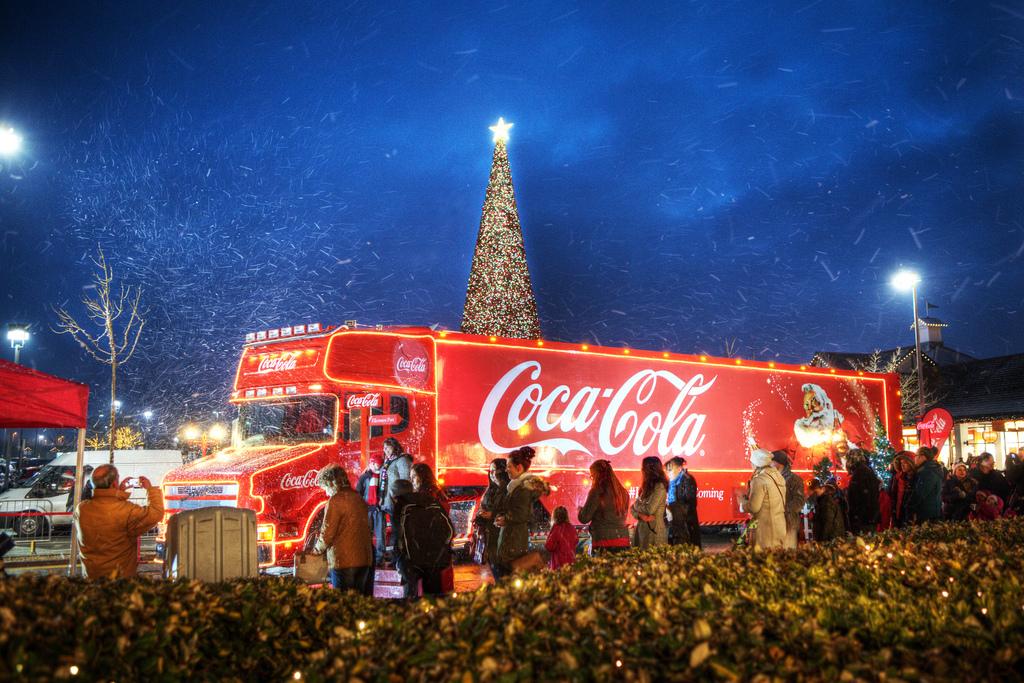The Independent's journalism is supported by our readers. When you purchase through links on our site, we may earn commission.
All I want for Christmas? The old-fashioned traditions back where they belong
Giving a Christmas Eve box of ‘early’ presents, the Coca-Cola truck, Elf on the Shelf… new festive traditions don’t get me in the mood, says Flic Everett


Two major Christmas adverts this year have focussed on “creating new traditions” – John Lewis, with its inexplicably needy Venus flytrap; and M&S, with a gaggle of angry, flame-throwing celebrities.
Rather than lean into tired old tropes involving snowy villages, Santa’s sleighbells and children singing carols, the festive season is now all about doing what you fancy. Decades of endless, dull Dickensian sameness are out; you doing you is in.
A recent survey by Ancestry.com helpfully pinpointed the top five of these new traditions – and what a sheep-like bunch of Americanised consumers we’ve become. The most-loved new thing to do at Christmas breaks entirely free of the clanking chains of stockings and midnight mass – instead, it’s now “watching Christmas adverts”.
“Hurry, grandmother, leave the plum pudding to boil in its muslin, Asda’s new commercial just dropped!”
I can’t think of a more depressing tradition than gathering around the glowing 55-inch TV to watch an AI-generated fairy fly over pigs in blankets, but here we are. No more lively family board games, just the fun of spotting a marginal price drop on cinnamon-glazed ham.
And while you might think Christmas Eve would remain untouchable, an annual shibboleth of sparkly-eyed anticipation, it seems that instead of leaving a mince pie and sherry for the beloved, bearded home invader, the new tradition is all about tracking Santa’s progress digitally by app.
“Oh, look! He’s in France. Has he stopped for a pastis? He’s not answering my texts.” No longer can we enjoy the magic of leaving the big man to get on with delivering Christmas. Now he’s under greater surveillance than a zero-hours contract worker in a white goods warehouse.
Worse still, Christmas no longer kicks off around December 18th. Parents are instead trapped in a full advent of festive subterfuge, thanks to Elf on the Shelf.
For the uninitiated, the figurine elf in question watches the children of the household by day, and reports naughty-or-niceness to Santa at night – which suggests a combination of vengeful Old Testament deity and creepy peeping Tom. Parents must get up at dawn for a month to move the smirking doll around the house, pretending he’s made footprints in the flour, or climbed the curtains overnight like a scuttling satanic entity. This peculiarly Puritanical conceit began in 2005, in the United States, which makes it less a tradition, more an invasion. It’s time someone made it stop.
And who decided it’s just not Christmas until the Coca-Cola truck – a throbbing Arctic lorry strung with fairy lights – rides into town and gets a reception on a par with the second coming when it pulls into the leisure centre car park?
When it comes to our new traditions, festive garments play a far larger role than in Christmases past. Most families used to dress up smartly, either for church or just because guests were arriving, and it was considered rude to greet them in a dressing gown stained with melted After Eights. Now, December is blighted by the directive to wear Christmas jumpers to the office – acrylic fast-fashion that will zoom to landfill faster than Santa’s forensically tracked sleigh.
Worse still is the “tradition” – which I swear started in the last five years – for matching family pyjamas. What normal family can afford five matching pairs of jim-jams? But this staggering waste of money is now a must for happy Insta-families, all crouched in front of the tree like a catalogue shoot, with “Ho, ho, ho!” or “Let it snow!” or any other mindless festive slogan scrawled across their chests. This bland festive photoshoot is increasingly common – despite the fact that it has nothing to do with Christmas spirit and everything to do with showing off your apparently perfect life.
And it’s no longer enough to put the children to bed with the promise of a stocking. Now, they must each have a Christmas Eve box – a mood-setting cache of presents to be opened on the 24th, including said pyjamas, a “Christmas book”, some game or toy and a “sweet treat”. But, hang on – that’s what Christmas Day used to be for!
All anticipation and hope is stripped away by these new traditions. Christmas now lasts for weeks, with adults truffling through £600 beauty advent calendars, rather than waiting for a present on the big day, and children wildly overwrought with excess by December 2nd.
“But traditions change!” argue the neo-festive families. “They make us happy!”
It’s interesting, however, that every single new tradition has something in common. They are all, without exception, invented by large companies, looking for clever ways to sell more stuff. And – ho, ho, ho! – sell it they do.






Join our commenting forum
Join thought-provoking conversations, follow other Independent readers and see their replies
Comments